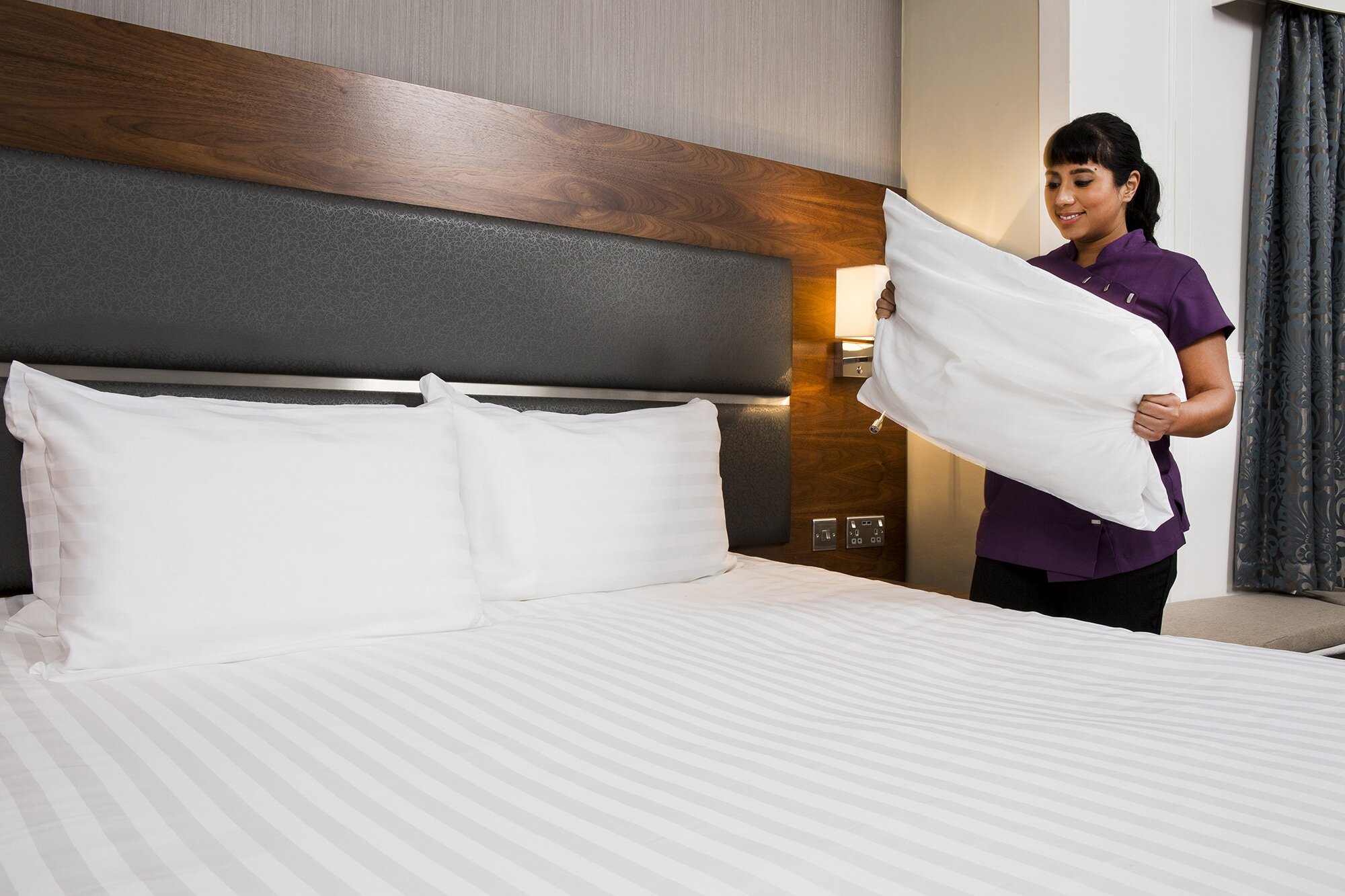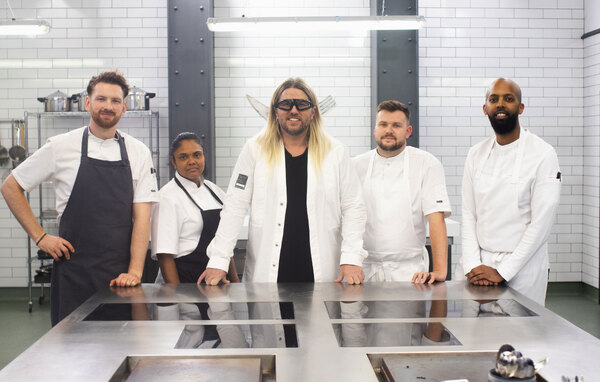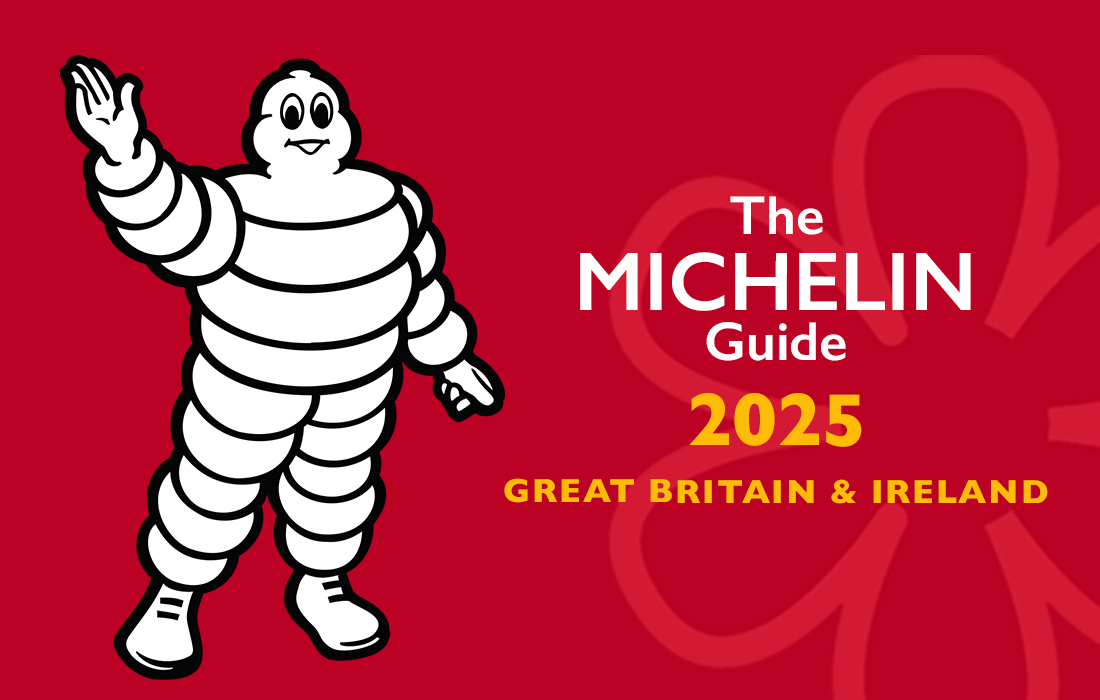Sheet dreams: laundries offering hotel bed linen that is both sustainable and sanitised
If you want linen that ticks the clean and green boxes, laundries are guaranteeing germ-free, beautifully scented bedding that will give your customers a great night’s sleep. Angela Frewin reports.
Clean, comfortable bedding, fluffy towels, crisp tablecloths and spotless workwear have always been part of the hospitality experience. But the pandemic means operators now have to factor infection prevention into the hygiene equation. As Justin Kerslake, operations director at hygiene chemical specialist Christeyns, points out: “It’s fair to say that customers may well be cautious and looking for signs that make them feel relaxed and able to fully enjoy their visit.”
A recent update to the Textile Service Association’s (TSA) Hygienically Clean Linen campaign relays encouraging research from De Montfort University: “Covid-19 can survive on cotton for up to 12 hours and on polyester for up to 72 hours. The good news is that Covid-19 is killed in all washing processes above 40°C with agitation and detergent,” explains David Stevens, chief executive at the TSA.
“However, a key consideration has to be cross-contamination – it’s essential that dirty and clean linens are segregated effectively to avoid any possible infection transfer.”
Fogging laundry cages and delivery vehicles are among the enhanced sanitation measures adopted by laundry and textile specialist Clean.
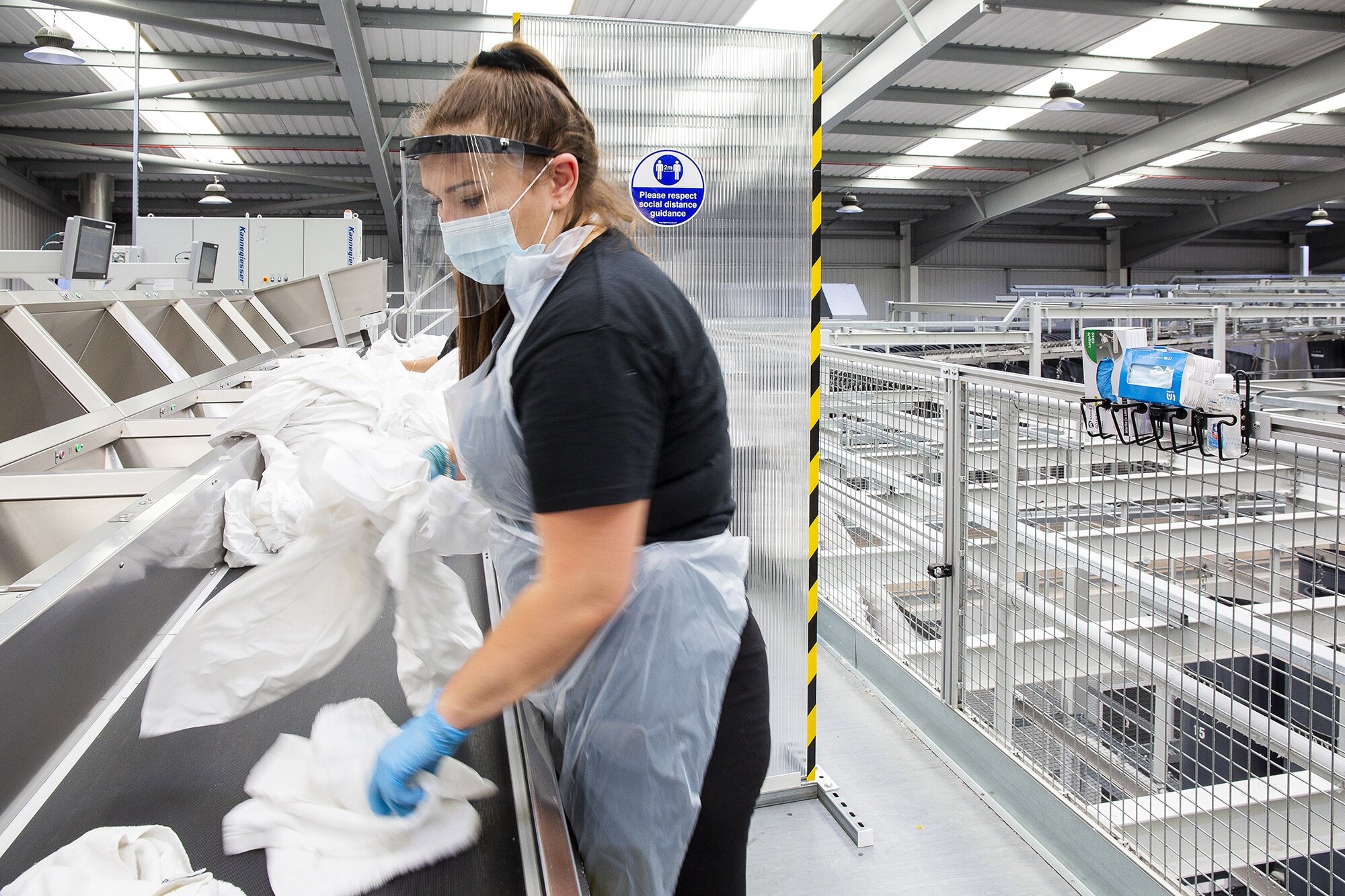
“Clean is thermally and chemically disinfecting all linen and towelling during the wash process and exceeding UK regulations by washing at 71°C for more than three minutes,” reports head of group marketing Ted Walker.
“After washing, all bed linen is ironed dry at 190°C and towelling is dried at 90°C-100°C for 15-plus minutes. We have also enhanced quality control by swab testing to confirm thermal disinfection has been achieved.”
Clean supported customers through lockdown by waiving minimum charges and incidental costs, adds Walker. And, instead of furloughing customer service and account management teams like many competitors, it retained key personnel to ensure continuity.
“An outsourced laundry service is the UK and European model – 90% of UK hotels choose to outsource,” says Stevens. “With very few exceptions, an outsourced laundry wins the argument on commercial, environmental, hygienic and operational grounds.”
They are, he says, cheaper than on-premise laundries (OPLs), save valuable space and enable customers to benefit from investment in the latest, resource-efficient equipment that is kinder to garments and the environment.
“A modern commercial laundry will use about three litres of water per kilo of linen. An on-site machine is going to use anything from 15 to 30 litres per kilo,” notes Stevens.
Nevertheless, lockdown, Brexit and inflationary pressures on fabrics, fuel and wages – allied with labour and driver shortages – will drive rises in the cost of laundering that may make OPLs a more attractive proposition, suggests Ruth Williams, product manager for fabric care at cleaning and hygiene specialist Diversey.
“We see a movement towards OPLs into operations. These things seem to go in cycles based on the trend to in-source other functions. We see customers wanting to be able to control and be responsible for the linen that they provide for their occupants,” she observes.
“With an OPL, laundry runs at your schedule instead of working around a partner company,” agrees Clare Humphrey, category manager at Miele Professional. “This offers seamless customer service and reduces turnaround time – something particularly beneficial as businesses work within restricted and varied hours.”
And it offers hotels an extra revenue stream, suggests Liz Smith-Mills, an expert advisory council member for P&G Professional: “An OPL system can help improve guest services with a rapid-response personalised laundry and dry cleaning experience. This enables hand finishing, especially of delicate fabrics and packaging, to be best undertaken on-site.”
Power play
Modern commercial machines offer cost-effective solutions over their lifetime, says Humphrey, and Miele’s latest compact Little Giant washers are tested to last for 30,000 cycles (against 5,000 for domestic machines) and tumble dryers for 40,000 cycles. The super-speedy 49-minute wash cycle on the new washers uses 22% less water and 28% less energy and can ensure thermal disinfection from 65°C for 10 minutes to 85°C for one minute. The patented honeycomb drum also reduces the snagging and tearing of fabrics, adds Humphrey.
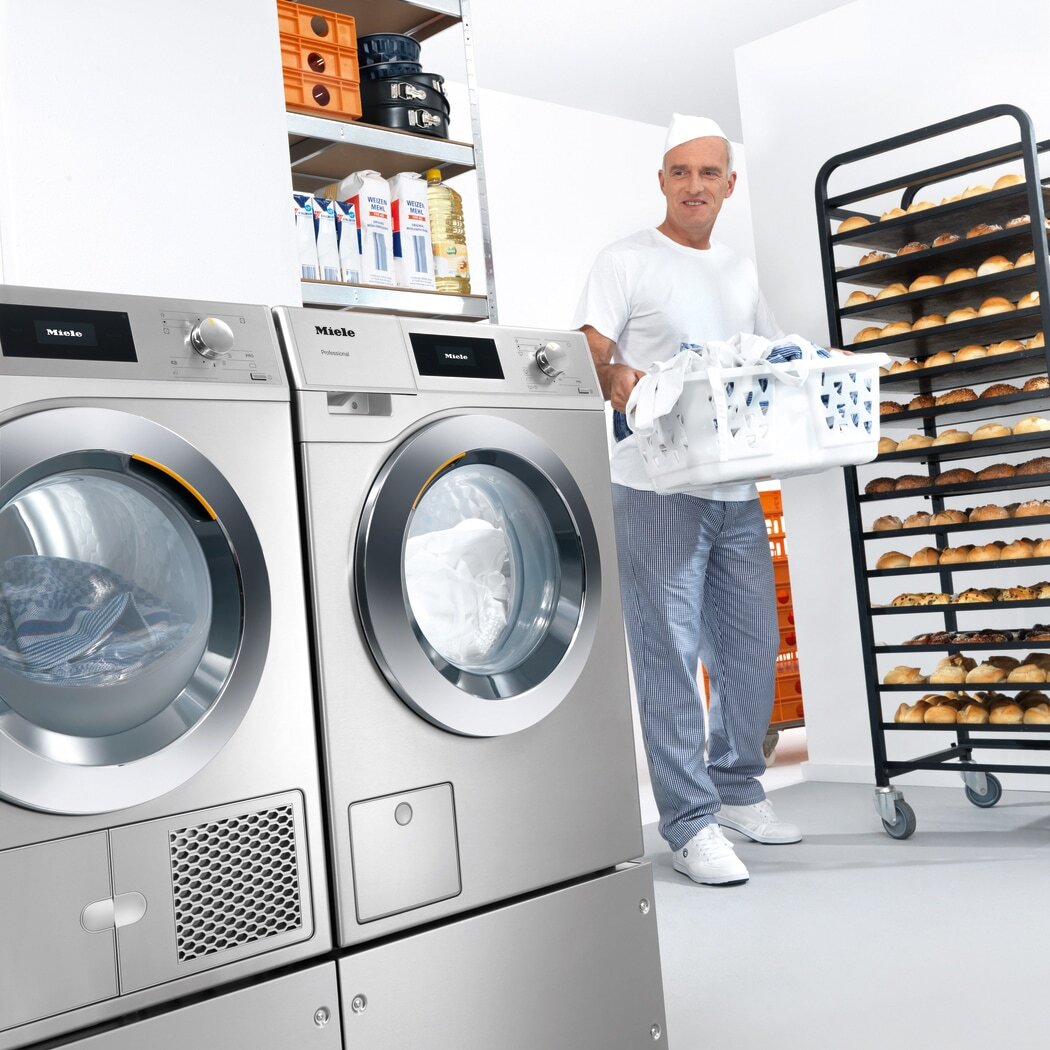
“Hotel laundries are particularly energy-hungry. Towels, robes and sheets make up more than 75% of all laundry items and are typically washed at 60°C or higher,” notes Williams at Diversey.
Many operators are moving away from the old high-temperature, harsh-chemicals approach to seek greener, cost-saving solutions that don’t compromise on cleanliness and hygiene and, says Williams, “Suppliers have responded with innovative laundry and fabric care products that are effective at lower temperatures and shorter wash cycles.”
This means less energy, water and chemical consumption and less limescale to reduce equipment efficiency and lifetime. The subtler ingredients used can help prolong the durability, life, colour and texture of textiles.
Clean sheet
Diversey’s low-temperature, auto-dose Clax Advanced programme of detergents, bleaches, boosters, stain removers and softener offer savings in water and effluent (35% each), steam (40%) and electricity (15%) and can extend linen life by up to 30% – a major benefit, says Williams, as, “Replacing linen can be up to 25% of laundry operating cost.”
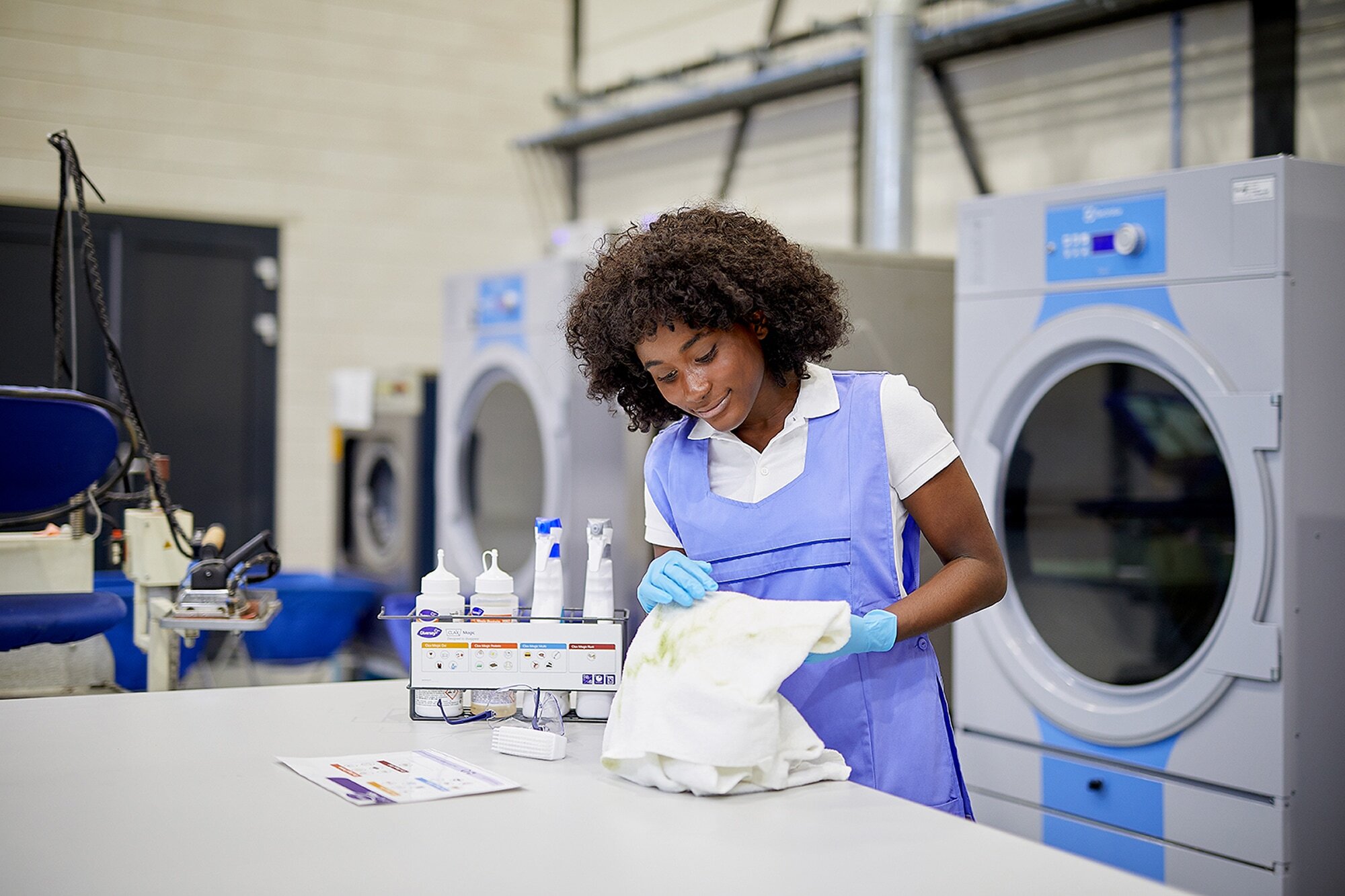
P&G’s Ariel Professional Laundry System is designed to deliver one-wash hygienic cleaning using money- and energy-saving cold (30°C) temperatures and short cycles. The three auto-dose options (equipment is installed for free on a no-cost loan) incorporate a liquid laundry detergent, whitener and stainbuster using an oxygen-based bleaching agent.
Also effective on cold washes is Micro-Fresh’s anti-microbial technology, which is impregnated into textiles during manufacture to block the growth and spread of pathogenic and odour-causing bacteria (including Covid). The hypoallergenic, vegan-friendly and plastic-free additive lasts for 50-plus washes and the laundry additive helps curb microbial growth between washes.
Heaven scent
Fresh fragrances can be potent confidence boosters but dissipate quickly in use and in the wash. Christeyns has tackled this with new encapsulated fragrance technology in its softeners, where perfume-containing micro-capsules adhere to the fibres and break when the textile is handled, providing sustained perfume release from bed linen and towels.
There is a dry-cleaning version (Sultra Aroma), plus the Prof-Fit Fusion option for washing special care fabrics, which traps and replaces bad smells such as smoke, body odours and damp with a tropical scent.
“Carpets, curtains and upholstery benefit from this type of treatment, and it is particularly useful for rooms that have been closed for a while, or for lobby areas,” says Kerslake.
Cloud-based digital technology is also saving operators money and time. Diversey’s IntelliLinen system allows OPLs to optimise the performance of their laundry equipment and reduce costs and rewashes by constantly monitoring wash cycle, energy and water consumption, chemical accuracy and machine downtime.
Commercial laundries such as Clean and Elis are putting radio frequency identification tags with unique IDs into textiles so they and their clients can identify, locate and track every piece of linen at any stage of delivery, collection and laundering. Hand scanners allow hospitality staff to count a linen store to 99% accuracy in minutes, compared with 30 or more minutes manually, says Walker.
With linen and laundry a key cost alongside wages and food and beverage, Williams at Diversey concludes: “Maintaining a high-quality linen stock is important to customers and is an asset to manage carefully. In hotels, it is one of the key things that guests will judge them on and therefore often affects satisfaction scores and return visits.”
Waste not
The TSA believes its members can help the hospitality industry recycle 100% of end- of-life textiles – which are predominantly white and made of natural fibres – within 12 months. It has teamed up with Swedish firm Södra, which has pioneered a method to re-engineer textiles into a pulp that can be used to spin cotton fibre yarns.
Each year, hospitality operators throw away more than 30 million (or 2,000 tonnes) of textile items, with most discarded sheets, duvet covers, pillow cases and towels ending up in landfill or incinerators.
Fabric fads
White remains the gold standard for fabrics in these sanitation-obsessed times, and can create what Walker describes as a ‘halo effect’ around beds, which many hoteliers are emphasising by decluttering peripheral items.
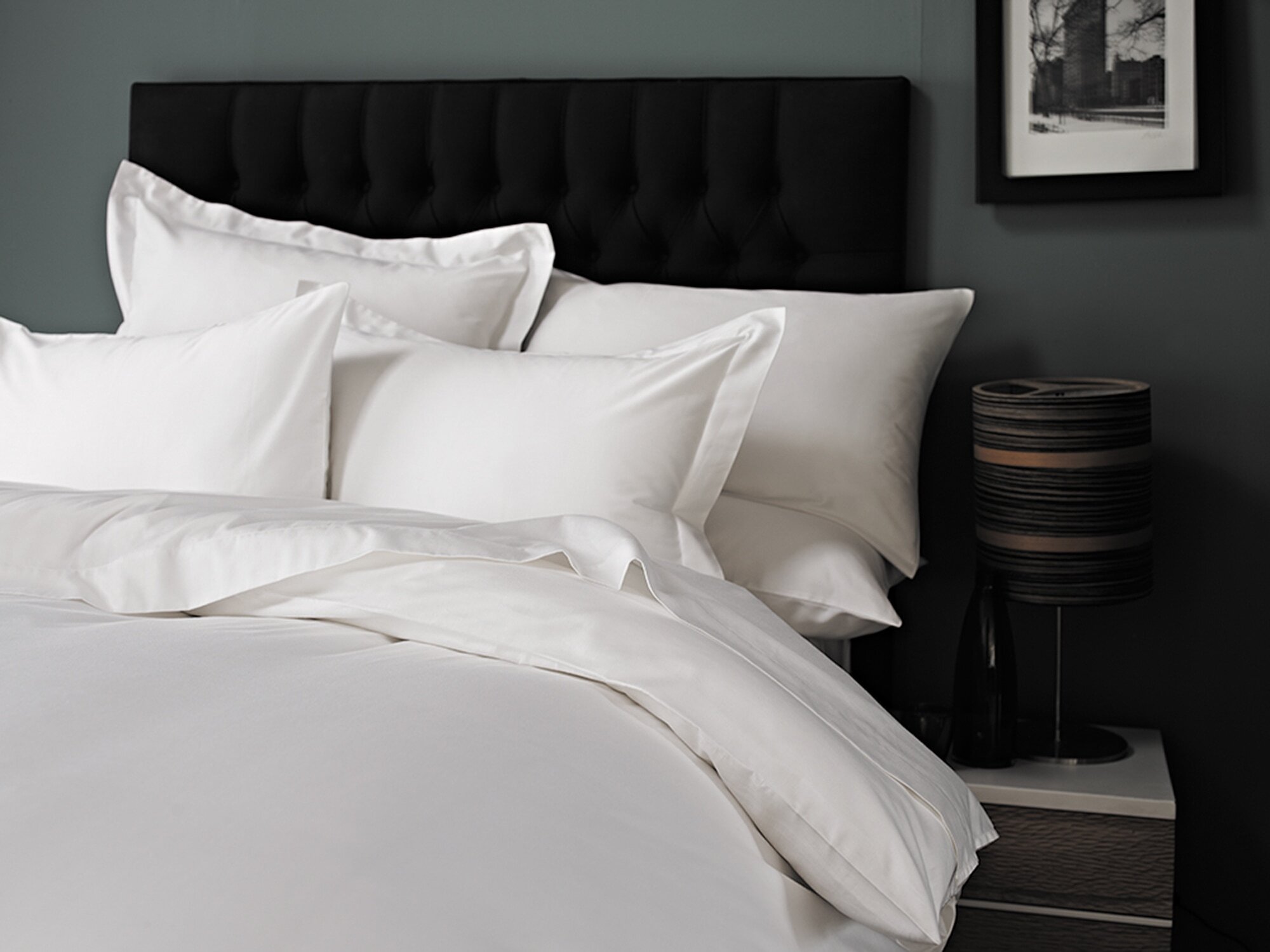
Clean finds many hotel groups are upgrading the sleep experience by moving from cotton/polyester mixes to the cool, breathable 100% cotton bedding in its premium Oria range, with its soft 300-thread count and silky sateen weave. It expanded the line this year with plush, durable and absorbent towels and bathmats.
Hire power
Operators can avoid upfront purchasing costs and easily change uniform sizes by renting linen and workwear from their laundry service providers. CH&Co unearthed some unexpected savings through its recent appointment of Elis to supply and launder more than 20,000 items, including chef wear, front of house garments and kitchen, table, bed and event linen.
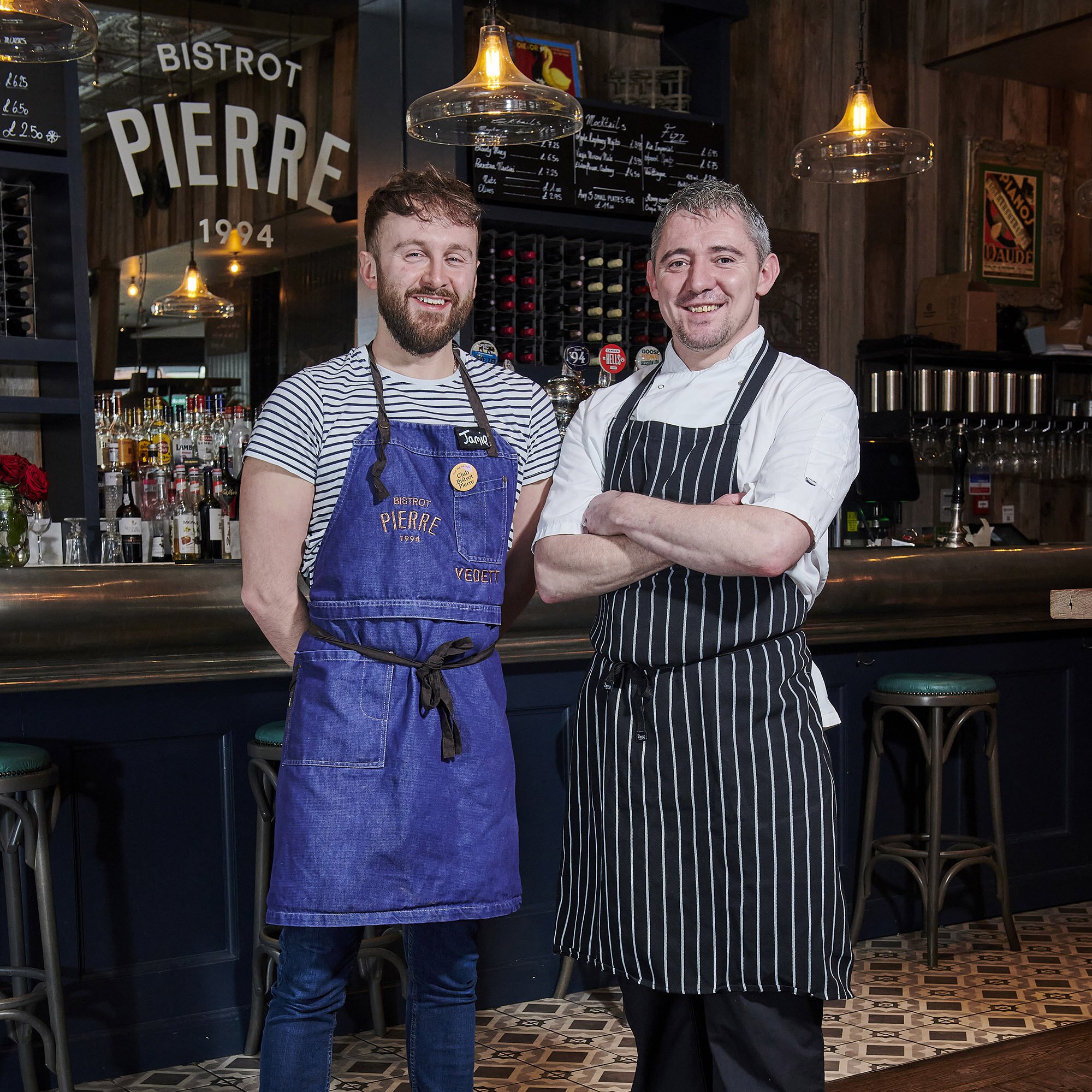
“Elis helped us streamline our product range from over 7,500 stock-keeping units to around 1,000, and radio frequency tagging was applied to all items to improve stock and cost control,” explained Katie Deem, head of procurement, category management and sourcing at CH&Co.
Bistrot Pierre, which runs 19 French-style restaurants, was thrilled by Elis’s bespoke sourcing of new workwear, communicating its brand values as part of its new textile rental and laundry contract.
The new front of house uniform combines a classic Breton striped T-shirt with a denim apron bearing the group logo.
“It was really important to the brand to have an embroidered logo on the front of house aprons,” enthused Bistrot Pierre marketing director Arpita Anstey. “Elis did a brilliant job in replicating this on the uniforms using a copper thread.”
Suppliers
Christeyns UK www.christeyns.com
Cole & Wilson www.coleandwilson.com
Clean Linen & Workwear www.cleanservices.co.uk
Diversey www.diversey.co.uk
Elis www.uk.elis.com
Micro-Fresh www.microfresh.com
Miele www.miele.co.uk/professional
P&G Professional www.pgpro.co.uk
Textile Services Association www.tsa-uk.org



